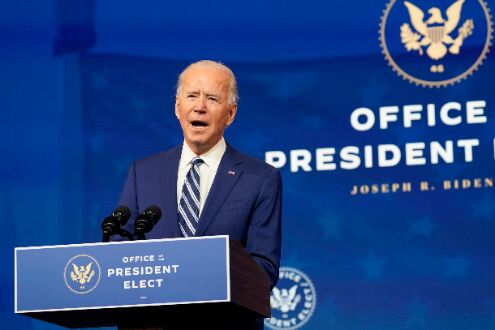Failure to launch?

Did Joe Biden overpromise when he vowed to bring journalist Jamal Khashoggi's killers to the light? Making tall claims during the campaign trail is common enough. The reality of being in the office often clashes with the idealism and wishful thinking that characterises many campaign promises. After the release of an explosive report that implicates Saudi Crown Prince Mohammed bin Salman in the 2018 murder of one of his biggest critics, the US announced new sanctions on many of MBS's supporters and his retinue. But, once again the Prince has walked away with no punishment or reprimand.
Now, the White House is facing increasing pressure from Democrats to hold MBS responsible as Biden had promised. The White House has defended itself saying that the US does not normally sanction foreign leaders, particularly in the case where the US has diplomatic ties with the country in question. White House Press Secretary Psaki has said that there is a better way to make sure such an incident doesn't happen again while also leaving room to cooperate with the Saudis in other areas. "This is what diplomacy looks like", was her assertion. Yes, this may well be what diplomacy does look like. Most times the unpopular but realistic option wins. But Biden should have known that. Biden is a Washington workhorse so to speak. He has a level of experience around politics and diplomacy that few US presidents in recent history could come even close to matching. Biden should have known better than to overpromise on something that he would have to walk back if he is pushed to commit.
In the current situation, it is unknown what direction the US actually plans to take Saudi relations. What was the point in releasing the report at this point? Many legal experts say that the case presented by the report release is no stronger or weaker in terms of convicting MBS than it was before during Trump's time.
True, if one were to realistically consider the idea of sanctioning or punishing the next ruler of Saudi Arabia, it is hard to see how the US would have meaningfully done so. As mentioned in this column and many others, the US just doesn't have the clout to punish MBS in any big way and sideline him in the process of succeeding his father the king. If the US were to be serious about any kind of punishment that would stick and actually make a difference for MBS, then it would have to risk much more than a simple reset of the relationship with Saudi Arabia. If the US plans to retain control of the region and keep an eye on Iran, then Saudi Arabia is vital to current US plans. Pushing the nation too hard on sanctioning or censuring their crown prince is only likely to damage relations, making room for interested third parties to come in and occupy the void. China, for instance, would find it a lot less problematic to supply MBS the weapons he needs to continue the war in Yemen, with or without US aid. If the US plans truly bring an end to the war in Yemen, playing nice with Saudi Arabia may just be a necessity at this point.
Where does this leave Biden? Some have suggested that two perceived failures in the region — bringing justice for Khashoggi and restraining the Iran nuclear deal — have dampened the hopes and expectations placed on the Biden administration. This is a bit of a jump. It is too early to call definitive defeat for Biden when it comes to such complex tasks. Was anyone expecting such matters to be resolved in a single month? It is still unknown as to what Biden actually planned as an outcome of the release of the report? Shame the prince and build pressure on him to keep his act straight? Maybe. That said, the release of the report places equal or even greater pressure on the Biden administration to act than it does on MBS and Saudi Arabia.



